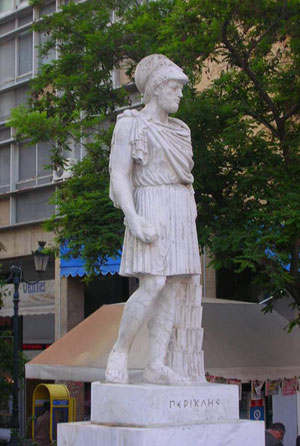
Source: PeriklisKotzia, Gepsimos, Wikimedia

Source: PeriklisKotzia, Gepsimos, Wikimedia
As we have learned, not everyone could participate in Athenian democracy. However, the period considered the "Golden Era" of Athenian democracy occurred under the leadership of a man named Pericles.
Under Pericles, participation in the government even among Athens' most poor citizens increased dramatically. Athens also became a wealthy empire by dominating neighboring city-states.
Citizens had a direct say in government policies, an idea known as direct democracy. This is another difference between Athenian democracy and ours. Most modern democracies are representative democracies, meaning that we vote for politicians who end up making the actual decisions.
The Golden Era of Pericles came to an end as a result of a brutal war with the neighboring city-state of Sparta (known as the Peloponnesian War). Some people at the time believed that the war showed the inferiority of the democratic system. How could democracy be the best system when it was defeated by Sparta, a military dictatorship?
What do you think? Should citizens be allowed to vote directly on policies (such as whether or not to go to war) or is our current system of representative democracy better? Is there such a thing as "too much democracy?" Is democracy the best form of government, or is it too messy and inefficient compared to more centralized rule?
Write your response to these questions in your notes.